The SLP Book Club: Stuttering
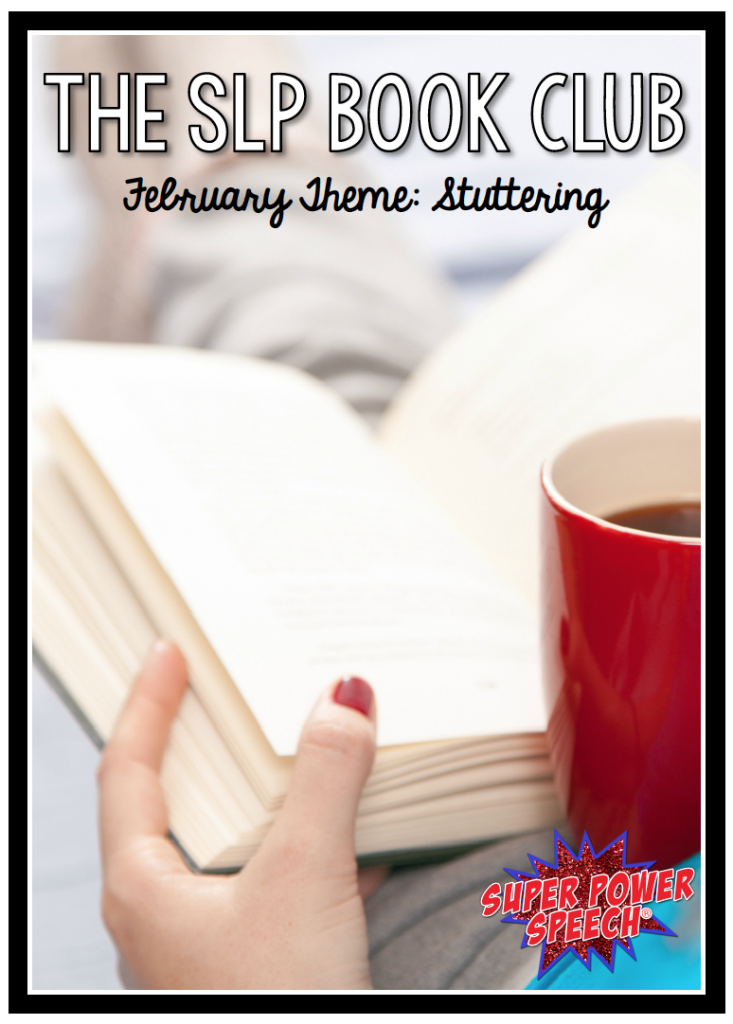
Welcome to the FIRST SLP Book Club!!!! I’m so excited that you are here! I introduced the book club last month with the mighty hopes that I could engage other SLPs and bibliophiles in conversations! And wow! Did you appear! Within a week, I had over 69 people say that they wanted to take part in this adventure! I announced that our first topic would be books about “stuttering” and that everyone who was able should read 1, 2, or even all 3 of the suggested books. Are you ready? I read them all and am so excited to get this discussion going!
How to participate:
- Read my thoughts.
- Comment at the end of the post with your own.
- That’s it! Welcome to the club!
Disclaimer: Amazon affiliate links included
Book 1: Black Swan Green
Author: David Mitchell
Genre: Fiction
The low-down: I discovered this book when searching under “speech” and fiction. Since I had loved Mitchell’s book Cloud Atlas, I was hoping to love this book as well. It is a story of a 13 year old boy living in a village in Great Britain in the early 1980s. Jason Taylor is dealing with a dysfunctional family, merciless bullying, severe “stammering”, and learning how to survive during the pre-teen years.
The bibliophile’s review: I often found the book difficult to follow. It seemed to jump around from scene to scene. The language and content was quite crude, but since I have a 12 year old son at home myself, I understand why it was included. At one point, it seemed like there would be a connection between the way that Jason is ostracized because of his stammer and the Gypsy community also ostracized because of their differences. But, then the story shifted and that analogy was lost.
The SLP’s review: Although Jason works with a speech therapist, he does not feel that it is helping. He does, on the other hand, have a rush of gratitude towards his speech therapist when she calls the school and ask that his public speaking assignment be postponed, “If I was the pope I’d’ve made Mrs. de Roo a saint. On the spot.” (location 793). It makes me wonder how many students I have had that feel one or both of these emotions towards me. That does make me ponder, for both better and worse.
Overall rating: 3/5
Quotes to ponder:
“Yis,” said Mrs. de Roo. “That’s the question. My answer is, It depends. Speech therapy is as imperfect a science, Jason, as speaking is a complex one. there are seventy-two muscles involved in the production of human speech. The neural connections my brain is employing now, to say this sentence to you, number in the tens of millions. Little wonder one study put the percentage of people with some kind of speech disorder at twelve percent. Don’t put your faith in a miracle cure. In the vast majority of cases, progress doesn’t come from trying to kill a speech defect. Try to will it out of existence, it’ll just will itself back stronger. Right? No, it’s a question–and this might sound nutty–of understanding it, of coming to a working accommodation within it, of respecting it, not not fearing it. Yis, it’ll flare up from time to time, but if you know why it flares, you’ll know ho to douse what makes it flare up.” (location 613)
“Picked-on kids act invisible to reduce the chances of being noticed and picked on. Stammerers act invisible to reduce the chances of being made to say something we can’t. Kids whose parents argue act invisible in case we trigger another skirmish. The Triple Invisible Boy, that’s Jason Taylor.” (location 4864)
Discussion question (from this reading guide):
At the beginning of the novel, Jason fears that his stammer defines him. Why do you think he calls it “Hangman”? How does he learn to adapt to it? In what ways is the stammer a limitation and in what ways an advantage? Imagine Jason without a stammer–how would the novel be different?
Book 2: Out With It
Author: Katherine Preston
Genre: Memoir
The low-down: This is a wonderful first person memoir by a young writer who has stuttered for most of her life. She tried various speech therapies and had various success. As a young adult she decides to interview hundreds of others who stutter, and by doing so learns to love herself and realize that stuttering has made her the person that she is today.
The bibliophile’s review: I really, really enjoyed this book. I’ve become a big fan of memoirs in the last year, especially those that sound like they could be bloggers. The author of this book seamlessly weaves her own history and feelings along with the stories of the many others that she has interviewed. The book flowed very well and I read it in just a few hours time.
The SLP’s review: Working with students that stutter is not an area in which I am very comfortable. I loved how the author discussed many of the different treatment options out there and where she falls on the issues. I appreciate that she neither blames speech pathologists for not “curing” her, nor does she feel like they ought to have done so. I actually feel that this is a book I might refer back to when determining treatment ideas for my next student with disfluencies.
Overall rating: 4/5
Quotes to ponder:
“I have never stuttered in a room on my own, and I have never stuttered in front of an animal. I have always known what my fluent voice sounds like, have always known that it exists somewhere inside of me.” (page 6)
“‘What distinguishes us from apes is verbal language,’ explains the author David Shields. ‘If you are having trouble with that part of yourself, at its worst, it can make you feel scarily inhuman. You feel like you’re part human and part monster.'” (page 78)
“Our own success comes from believing that we are enough. As the research professor Brene Brown explained in her groundbreaking TED talk, ‘It appears that vulnerability is the birthplace of joy, or creativity of belonging, of love.'”
Discussion question:
What do you feel was the biggest defining moment mentioned in this book. How do you feel like that defining moment changed (or didn’t change) the author’s feelings about her stuttering?
Book 3: Paperboy
Author: Vince Vawter
Genre: Children’s fiction/memoir
The low-down: This is a children’s chapter book describing the summer of 1959 for an eleven year old in Memphis. The narrator takes over his friend’s paper route for a month and during that time learns much more about himself, his family, and his speech than he had ever imagined.
The biblophile’s review: I LOVED this book. I usually enjoy children’s chapter books and read them from time to time, but this one was right up there with Wonder and Wonderstruck for me. The book covered so many important topics including racism, adoption, domestic violence, bullying, faith, and differing abilities. Before I had even finished the book, I told my 11-year-old daughter that I want her to read the book ASAP.
The SLP’s review: I LOVED this book. The narrator’s voice is so honest and clear about his stuttering and speech. He admits much more about his feelings and struggles than my students will ever tell me.
Overall rating: 5/5
Quotes to ponder:
“Voltaire was a French philosopher of two centuries past. He answered your questions quite well. ‘La parole a été donnée à l’homme pour déguiser sa pensée.’ It translates: Speech was given to man to disguise his thoughts.” (page 63)
“I wish I had a book
That did not have an End.
I got to pick it up
And it is new again.The words feel read
And mine to share.
They have no sound.
They have no air.My voice is clear
And lets me speak.
My fear is gone.
I’m never weak.My words all come
And right on time.
The words are true
The words are mine.” (pages 108-109)
Discussion question:
During an interview, the author states, ““Paperboy” is an autobiographical novel, almost a memoir. I have had a speech impediment all my life. As a child I suffered with it. As an adult, it’s a challenge that I welcome and find that it gives me a certain amount of inner strength.” Why do you feel that the author now believe his stuttering gives him strength?
Next SLP Book Club:
The next SLP Book Club will focus on the topic of Down’s Syndrome.
Make sure to COMMENT BELOW that you are IN for the next club so I include you on my email list!
Buy or check out the following books to discuss on April 28th (that gives you two months to read!):
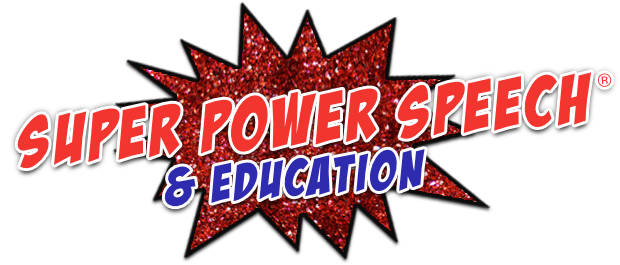
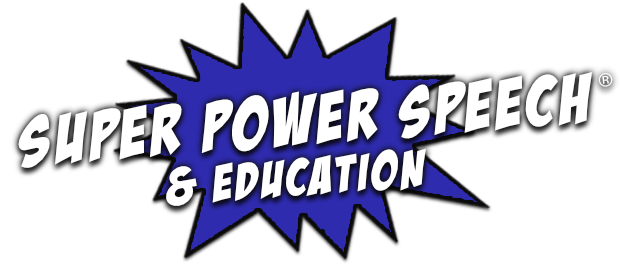






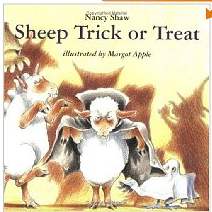


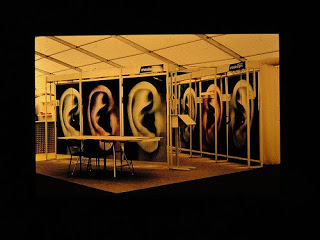
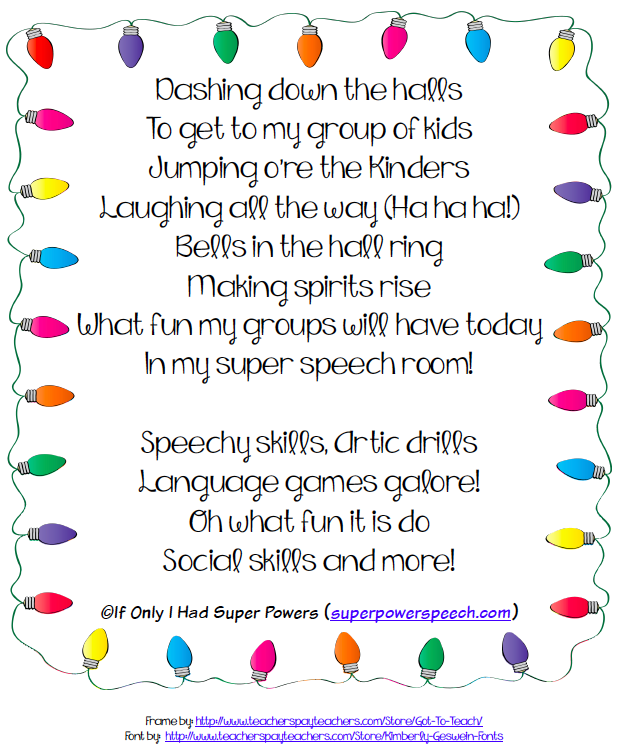
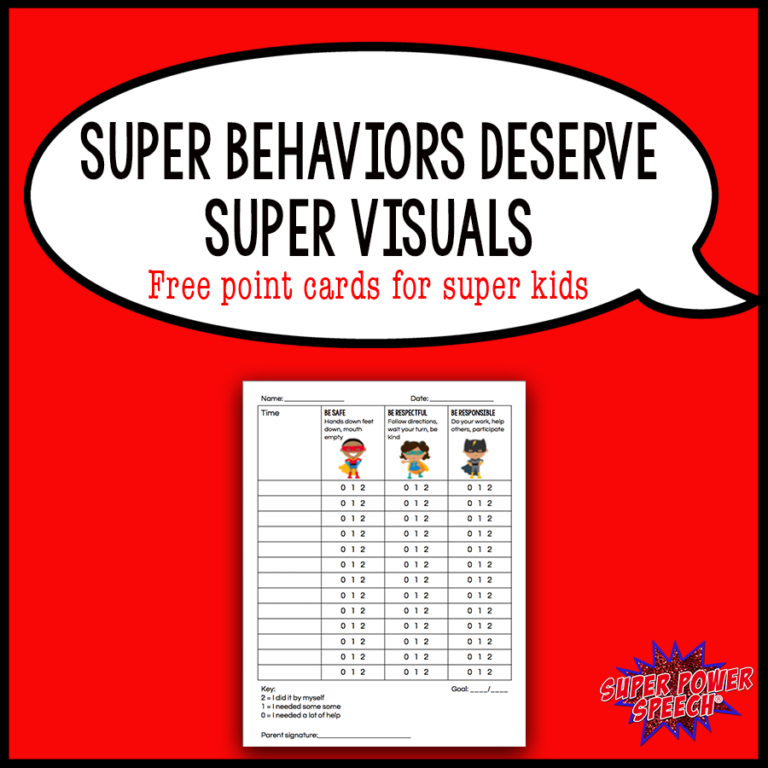
To answer the first question, Jason calls his stutter “Hangman” because he first noticed it while playing a game of Hangman.
I had totally forgotten that part! I wonder if there is any additional meaning to it?
I forgot that part, too (haha)! I had likened it to maybe how he physically felt while he was blocking… Like a hangman’s noose around his neck?
That’s actually what I was thinking too Andrea.
Oh yes, I’m sure that’s the subtle message, it was just explained with the reference to the game.
That was my thought too. And not just the feeling of a block but, I imagined, the feeling that the entire town had come to witness your struggle/death.
IN for the next set
Yay!
I only had time to read one of the books, and I chose “Paperboy”. It was so good–a quick read and well written. After reading a few pages, I thought the author did a great job of describing the stuttering of the main character. Then I read the ‘author’s notes’ at the end and realized it was a somewhat autobiographical story of what happened to the character one summer. I thought the speech strategy of letting out air with the gentle “s-s-s-s” sound was interesting, and I hope the author got some other strategies to use as well.
I had my daughter read the book and she was confused by that part as well. I can see why it would be both helpful and soooo frustrating to try to remember to do every time that he spoke.
I read The Paperboy. A couple of things struck me, not the least of which is that perceptions of stuttering haven’t changed much in 60 years! People are still fearful, wary, and cruel when it comes to stuttering. With all we now know, I would have thought our perceptions and ultimately behavior toward this difficulty would have evolved!
“La parole a eté donnée a l’homme pour déguiser sa pensée.” It’s a sad truth, that what we say often aligned with what we think. I know personally, that there are instances daily when what I think is not reflected in what I say. Conversely, when I think on my students with NO filter, this quote may be wonderful to teach and discuss!
In terms of “stuttering giving strength,” more often than not adversity builds strength, IF we allow it. The author could have been thwarted by his disability, but rather he chose to use it as a catalyst for growth. Not only did he allow his stuttering to help him grow, but he reframed all his summer experiences, positive and negative as a springboard for growth.
I loved the relationship development in the book. As the story unfolded each relationship the protagonist had, shifted as he changed. More support for the idea that as we change those around us cannot help but change as well.
Does anyone else think Victor Vollmer’s mother was dyslexic?
Re: VV’s mother possibly having dyslexia… the thought entered my mind as well!
Re: to VV’s mother possibly having dyslexia… the thought entered my mind as well!
I was thinking more misnomia? Or some kind of Broca’s???
Annie, did you read “Out with It”? The author of that one really uses her stuttering for growth!
I didn’t read out with it! I will, though.
I am nearly through with Paperboy and have a comment. At first I was frustrated by all of the “ssssss” soft air typed at the beginning of the narrator’s words. It made it a little more challenging to read and it got “old.” Then the little epiphany hit: What a fabulous way to drive home the point that stuttering is difficult for those who live it!
such an interesting way to look at it!
I am reading it aloud to a sixth grader and saying the s-s-s-s-s presents a very interesting challenge as the narrator!
To follow up on what Shari B said, I also noticed all the ‘s-s-s-s’, but what I tried to do was imagine saying it that way and I even tried it out loud a few times to see what it felt like. It would be hard to have to remember to do that all the time, so even more reason for us to be sensitive to what we are asking our students who stutter to do or to practice.
At the beginning of the novel, Jason fears that his stammer defines him. Why do you think he calls it “Hangman”?- As Mrs. T said, he calls it hangman because he first got stuck on a sound in front of people while playing a game of hangman. How does he learn to adapt to it? He circumlocutes the words he knows he is going to stutter on. In what ways is the stammer a limitation and in what ways an advantage? Stammaring is a limitation because you can’t use the language you would like to use, but it can be an advantage because you have to learn many different ways to convey the message you’re trying to get across. Imagine Jason without a stammer–how would the novel be different? The novel would be different because he might not be bullied if he didn’t have the stammer, he might be more outgoing with classmates, and standing up for himself.
I didn’t have a chance to get to the other books, but they got such rave reviews I have to go check them out!
Yes, I only read Black Swan Green also (it was the only one that my library had), but I am interested in the other books. This book was sort of frustrating to read (the short story format was hard to get used to), and it often left me with unanswered questions. I did like the reference to the fact that Hangman always hides from speech therapists. I actually used that tidbit in an eligibility meeting this week!
Another point that I used (in the same meeting) is how frustrating it would be to always have to change around what you really want to say.
Black Swan Green wasn’t my favorite. It was just okay to me. The circumlocution was very interesting though.
I’m only about half way through it, but I will try to finish. For some reason, I hate to leave books unfinished!
Me too. I almost never abandon a book (but I may skim through it just to say I’ve finished it!)
I read all three books and loved them all! I think my favorite was probably “Out With It”. It was illuminating to see the change of Katherine’s perspective related to her stuttering across the stages of her life. There were many” defining ” moments in the book, but one that felt cathartic to me was when Katherine was cruelly mocked in the bar toward the end of the book when she stuttered while telling a couple that she taught public speaking! My insides clenched reading that! The way that she processed the situation, going through so many emotions, and her reaction of just realizing that she did not really care ultimately how her stuttering was perceived at that point because she could communicate the way she wanted and felt true to herself was amazibg to me. What an amazing young woman.
Now I want to read this book. I didn’t get around to all of them.
I definitely recommend it. I don’t usually go for memoirs but this one was special.
I’ve actually found myself really enjoying the memoirs that I’ve read in the last year. Maybe I”m just finding better writers than I used to?
Could be 🙂 looking forward to reading more of them!
Andrea, that part was AWFUL!!!! She sure is brave to be instructing public speaking to begin with though!!!
I also loved the various defining moments! I thought that the book was very well put together with her story and the interviews with similar echoes and feelings in their stories. Very touching and interesting to read as someone who works with individuals who stutter
This was the one I didn’t get too! I’ll be sure to keep it on my nightstand In for the next group discussion too.
I’m in for the next round.
I also really liked “Paperboy” because Victor reminds me of a student I worked with during my first year in practice. Same age as V. and he even loved baseball 🙂 Hard to believe he will be graduating next year!
It’s so crazy to see our kids grow up! I’ve had some that are now in transitional programs and graduated.
Someone mentioned wondering if the mother in “Paperboy” might have dyslexia, and I also thought she might have word finding or vocabulary issues, as she often “mis-called” words, such as “segregation” for “integration”. I also loved the character of “Spiro” and his interactions with the main character, those were my favorite parts.
I thought retrieval issues.
Oh, and definitely IN for the next round 🙂 This is SO COOL!
First of all, I love this idea. Thank you!
I read Paperboy. It was a great book, and it had wonderful character development. Everyone needs a Mr. Spiro in their life.
My favorite quote: “One of the most beautiful happenstances of life is the person doing precisely what he knows is intended for him. Unfortunately a rare situation.” I consider myself blessed to be doing what I know I should be doing.
I’ve started Black Swan Green, but doubt I will finish.i’m only on chapter 2, but so far I am not enjoying it.
I’m definitely in next time.
I do wish I had a Mr. Spiro in my life!
I want to read Out With It, but it’s not at my library. So keeping it on my want to read list.
That’s a bummer. 🙁 My city has an amazing library system so I was able to get all of these books via the library.
I did not have time to read “Out with It” but I had already purchased it. I am looking forward to it. I chose to read the other two books first, because I was hoping to get more insight and topics for discussion for my middle school fluency group.
LouAnn, that is such a great idea to use the books to help with therapy and support!
I’m IN for the next set of books in April
awesome!
In “Paperboy” I really liked the relationship between the young man and his ‘nanny’ that he called “Mam”–I thought she was the most interesting character next to Spiro, but then I usually like the offbeat characters better (maybe I relate to them?), though I did really like the main character. I hope this author writes more books, I would read them.
An idea for next time-maybe just 1 or 2 books–this is such a hectic time of year, with progress monitoring, tons of IEP’s, transition meetings starting, Spring Break coming, etc. I wish I had been able to read the other books, but I will put them on my wish to read list.
Judy, I agree – loved the relationship and trust that he had with Mam and Spiro. Really underlined the importance of having a sincerely interested, patient listener whenever we are attempting to communicate.
I listened to “Black Swan Green” on my Audible App as I drove to and from work. I think it was a good choice for listening, because of the English accents and vocabulary. I found it interesting that Jason called his stammer “Hangman” because none of my students have ever given it a name. I believe that giving it a name really helped him to explain and define his feelings more clearly. I am interested what my middle school fluency group thinks about the idea of naming it. Has anyone ever had students that gave stuttering a name?
I did not get a chance to read “Black Swan Green” this time, I may have to add it to my reading list. I have never heard of anyone naming their stutter. I think “Hangman” is a very insightful name for a stutter for sure. Also reading others comments about it because of when he noticed the stutter is interesting. I know not many students or parents can even pin point a time they began to notice a stutter.
Not their stutter… but my friend’s son had a TBI and he has lost most use of his right arm. He named his arm “biscuits” and refers to it that way (such as, “Biscuits is having a hard time holding that.”)
I ami in for the next round of books. I was hoping for fewer books, but two of these I have read before. I will read them again, as I have press many, many books since then. Looking forward to it.
Obviously, I have read many books not pressed them. ☺️
After this next round, I will reduce it to 2 books. I want to keep options so that if people aren’t interested in fiction, they can read the other book (or vice versa). Or if your library only has one of these books, you can just read that one. Also, I’m making it 2 months between book clubs now, so there is more time to read. 🙂
Yay! I need more time to read! I really want to read all of them.
Good idea to reduce to two and every other month. I have such a stack of books already that I want to get through!
I enjoyed reading The Paperboy. I had mentioned it to my middle school fleency group, and one of my students was eager to read it. I gave him the library copy and ordered one of my own. It was nice to have my own copy to mark passages as I read. Right now, I have this group brainstorming ideas for my elementary fluency group. They love helping with this, and I truly can see what they know. This week they are creating a bulletin board for the elementary hallway. I am anxious to see how they like this book and their thoughts about it.
I think having your middle school students read the book and help with your elementary group are both great ideas!
The other thing I thought of is the importance of mentors and role models in a young person’s life. Spiro, who spoke to Victor with honesty and intelligence, was a favorite character. I loved the way he inspired him to think. Mam was a pillar of strength and provided security, love, protection and sustenance. She also held Victor accountable, knowing when he was pulling the wool over her eyes. She was the epitome of unconditional love and the notion of there is no greater gift than to lay down one’s life for a friend.” She was willing to do that to take care of Victor.
I’m in for the next round, too. I’m looking forward to reading these books. This is a great idea, BTW!
It looks like this was a success. I have already read Memory Keepers Daughter, but it was so long ago, I may need a reread. I recall loving the book. This was fun!
IN for the next round!
PAPERBOY – As soon as I realized this was a children’s books, I had my doubts that this would not be the book for “me”. But as I got into the meat of the story, I was quickly impressed with the maturity within the text. Perhaps it is because the young boy has a stutter that his life deals with more challenges than your average boy/child.
I love how accepting the boy is of everyone throughout the story. I think because he has felt judged by others so often, that he really gives everyone a fair chance to prove themselves to be either people who are worth his time, or people who are not (Ara T). He doesn’t cast anyone off negatively at first, he does not judge superficially.
I also enjoyed the reminder to let people who stutter talk, and for me to be a better listener to everyone. In my personal life, my mom has an early diagnosis of Dementia, and I keep finding myself and others completing her sentences. This book reminded me to listen more and to use some of my therapy skills to help her with word finding problems.
GREAT STORY – fantastic characters.
I, on the other hand, LOVE children’s books! I was upset that I couldn’t find a children’s book about Down’s for the next book club!
Huge YA fan too!
I read “Out With It” and absolutely loved it! It was a fantastic book with great insight from someone who has stuttered. I also love the quote about her knowing what her fluent voice sounded like because she didn’t stutter alone or with animals.
The way she viewed herself by thinking of how others saw her was absolutely heartbreaking. I love how she embraces her stutter at the end.
The interviews offered even more insight and personal stories.
I will be joining in for the next book club too!
I read 2 and 2/3 books, and am trying to catch up on all the comments.
Paperboy and Out With It were my favorites.
I listened to Paperboy as an audio book, with commentary by the author at the end. This was a very personal story for him. I liked it better than Black Swan Green, because he had more support and connections. Black Swan Green had so much bullying that it made me cringe. I wasn’t sure if this was a reflection of British schools, or if the author was just trying to increase the “drama.”
I’m about 2/3 of the way through with Out With It, but am finding it interesting. The fact that she seems to have private group therapy and little in-school therapy was troubling. Again, I’m not sure if that is a “British thing.”
Anybody familiar with British schools?
One more thought. The characters in all 3 books seemed so unsupported in their schools. I work in 5th- grade thru age 21, and the students with disabilities are included and supported. We really try to share information about different disabilities, and the students know to let adults know if anyone is being bullied, teased, etc. Our students are support each other, and are safety nets for each other. If there are issues, we have students come and let us know – most often the problems they report are not bullying, but more expressing concern about how to help a peer.
How many of you work in schools where a student with fluency issues or with any disability gets routinely bullied?
How many of you work in schools where the students have a lot of peer support?
Fabulous questions!! I work elementary and I feel like there is some really good support in my classrooms with autism, but less so with other disabilities.
I work in an elementary school also. I have found most students to be kind. Classroom teachers always ask for help with a stutterer in their class-how to handle read-alouds, class discussions, etc. I feel lucky to work with a caring group of teachers.
CC – thank you for doing this! When I finish Out With It, I’ll be rereading Memory Keeper’s Daughter. Haven’t read the other 2. This is such a great idea!!!
I’ll also be re-reading it. As an adoptive parent, I remember being especially moved by it the first time (but that was years ago).
I’m in for the next book club.
Currently, I’m reading paperboy and think it’s great. Hope to be able to comment more over the weekend.
Truly loved Paperboy. Never fully embraced BSG. Need to hit Out asap based on comments! The quote is flagged was in BSG, “in the next room a freckly girl Julia’s age sat in a wheelchair. One of her legs wasn’t there. She’d probably love to have my stammer if she could have her leg back, and I wondered if being happy’s about other people’s misery. That cuts both ways mind. People’ll look at me after tomorrow morning and think, ‘well my life may be a swamp of s*** but at least I’m not in Jason Taylor’s shoes. At least I can talk’.” What a great discussion question for hidden v open disabilities or physical v neuro ones. And what a human emotion to compare and determine your worth or rank based on other’s perceptions.
I was just thinking how great J’s perspective-taking skills are 😉 Definitely read “Out With It” if you have the chance!
This was my favorite quote! I think it is a great skill to take perspective of another person, and often we have to teach this. I am using this quote with my middle school fluency group this week.
I gave a presentation to our elementary faculty last fall about Speech and Language. During the presentation, I used “Would you Rather” for several funny brain breaks. At the end, I asked “Would you Rather” and listed the areas of disability recognized by our state. This was very powerful. Our students and parents do not get a choice, and often taking the perspective of a student or parent helps to create a healthier collaboration with a teacher. I look forward to doing “What If” scenarios with my next presentation. I love doing “Would you Rather” and “What if” questions as I walk students to and from Speech.
LouAnn, what a great idea to use “would you rather” activities! I also need to do something like this. Would you be willing to share what you did? If so, my email address is jhale@pylusd.org
thank you so much
I just ordered Out With It!
One quote that stuck with me from BSG ( which was harder for me to get through but I still enjoyed it) : “Me, I want to kick this moronic bloody world in the bloody teeth over and over till it bloody understands that not hurting people is ten bloody thousand times more bloody important that being right.” (pg. 118).
Also the bit about Pyrrhic victories. So many levels…
I am in for next month!
I read Paperboy and loved it. It reminded me of the book Wonder.
Wouldn’t this be a great book to read as a school? Or with a therapy group?
It was so interesting that the book was semi-autobiographical. It was
enlightening to read his thoughts and feelings about his stuttering. It
Is it often that students open up enough to tell their feelings. That’s why
I thought this book would be a great read for a therapy group. Maybe allow
students to discuss stuttering in the book with their own struggles.
Sorry the typing looks weird tried to do thus on my phone.
Loved Wonder!! One of my 5th grade teachers reads it to her class every year!
I am reading Paperboy with my middle school student. They are really enjoying it!
I loved Paperboy and found it very addictive! I felt that he gained much strength from all of the trials he experienced which were just compounded by his stuttering. He had to mentally prepare his answers which seemed to give him an intellectual strength beyond other children his own age and even some adults in his life. I also felt that he had a deeper awareness and forgiveness or maybe acceptance of others’ personal issues. Great choice! 🙂
Definitely had a great intellectual strength beyond his years!!
I read Paperboy and Out with It but did not get to the 3rd book. I was inspired by the courage of Vince in Paperboy and his use of the strategy he had learned in speech therapy. It was also interesting to read the other things he tried to be fluent…tossing his pencil, yelling. I really liked Out with It and the insight into Katherine’s thoughts about different therapy techniques. I never understood the voluntary stuttering approach and was intrigued by her reaction to it and how it felt like a game and was freeing for her. Great choices for books!
I am in for the next book club!
Awesome! Did you sign up on the new opt in form?
I didn’t realize I needed to sign up again but I will:). The books for next session look great and I am glad I have two months to read them all!
Sorry about the need to sign up. It is because of my new newsletter.
Oh btw, I found an educator’s guide for Paperboy.
https://www.randomhouse.com/teachers/wp-content/uploads/2014/06/PaperBoy_EducatorGuide_SinglePages-small4.pdf
Wow! Thanks! I look forward to using it!
I read Paperboy and LOVED it! Though the adoption storyline felt unresolved and unnecessary given all the other tough subject matter. Mam reminds me of Calpurnia in TKAM. The fight near the end was nuts! And Mr. Spiro with his place full of books—-oh my, heaven! I loved that he talked to Victor in such a grownup and respectful way, using unusual vocabulary. I wanted him around more!! He felt like such a safe place-as a person and in his home. Victor didn’t seem to have many friends his age, which may be common for children who stutter, I don’t know.
I didn’t get to BSG and based on the comments/blog post I pbly won’t. I plan to read Out With It but neither my library nor Overdrive app have it yet. Memoirs are a fav genre for me so I’ll enjoy it. I still own a stuttering memoir from grad school days, ya’ll. Does anyone remember Stuttering: A Life Bound Up in Words by Marty Jezer?
I am IN for the next book set
Awesome! Did you fill out the form to get on the list?
Going to try with the next set of reads – Thinking “Jewel”… Thanks for doing this, Rebecca
Yay! Hope you signed up to get reminder emails!
This is a great book club. Thanks for the suggestions!